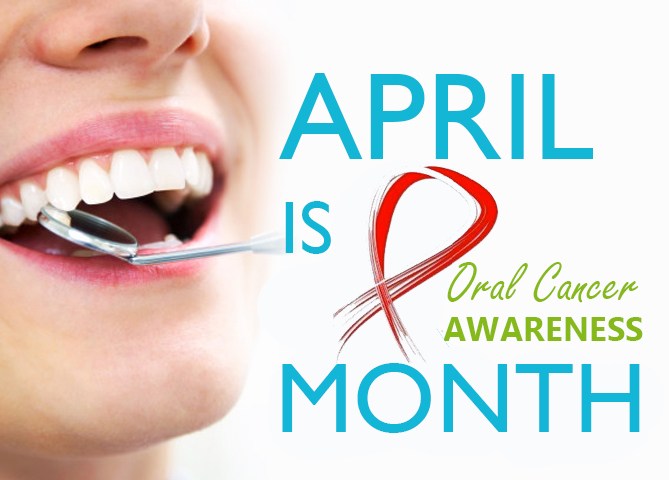April is Oral Cancer Awareness month. Why is this so important to you?

Most people do not realize that roughly 53,000 Americans will be newly diagnosed with oral cancer this year alone. One person will die EVERY HOUR OF THE DAY, 24 hours a day, 7 days a week for the 365 days. In the United States, Oral Cancer awareness is low, ignorance can kill.
Of the people newly diagnosed with these cancers, 40% will not survive longer than five years. The death rate remains particularly high because the cancers routinely are discovered late in their development. Many Oral Cancer patients who do survive suffer continuing problems such as severe facial disfigurement or difficulties eating and speaking.
Oddly, the quickest growing segment of oral cancer patients is young, healthy, nonsmoking individuals due to the connection to the HPV virus. You would assume that smoking and tobacco use would be the major risk factors. We have all learned how difficult it is to stop a virus from spreading; your only hope to save lives is with professional involvement and public awareness.
The good news is, when Oral and Oropharyngeal Cancers are detected and treated early, the mortality and treatment-related health problems are reduced. This is why you need to be aware. When you go to your internist or most other physicians and they look in your throat, it generally is not to screen for it. They check for sore throats, infections, tonsils, postnasal drip, and the like
It is a visit to your dentist that can identify the signs and symptoms and begin treatment at an early stage. There is specialized equipment (Velscope) available to dentists and oral surgeons, but using a dentist with oral pathology training is more important. A skilled diagnostician knows the exact signs to look for and is more accurate than the equipment. By not making routine dental appointments once or twice a year, you risk the possibility of a silent killer growing undetected.
Listen to your body, it speaks volumes. It is important to be aware of the following signs and symptoms:
- a persistent sore, soreness or irritation
- red or white patches, pain, tenderness, or numbness in mouth or lips
- lumps, thickening tissues, rough spots, crusty or eroded areas
- difficulty chewing, swallowing, speaking, or moving your jaw or tongue
- a change in the way your bite or the way teeth fit together when you close your mouth
If the symptoms do not improve or disappear, call Dr. Lichtenstein right away. Early detection and treatment may well be the key to a complete recovery.
Dr. Lee Lichtenstein and his highly trained staff offer general dentistry services. These treatments can be performed using sedation and general anesthesia techniques make patients’ experiences more pleasant and comfortable.
Contact our practice to schedule a consultation to discuss your dental needs and concerns
723 North Beers Street
Holmdel, NJ 07733.
(732) 739-3337
email us at DrLichtenstein@SleepDentistryNJ.com
